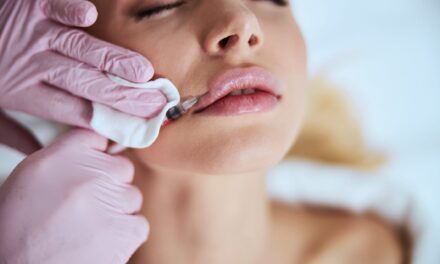They say that summer bodies are made in the winter. It’s a fact echoed in a 2023 report by The Aesthetic Society, which revealed that 55% of surgical cosmetic procedures in 2022 occurred during the early months of the year. Board-certified plastic surgeon and author Dennis Schimpf, MD, MBA, FACS, shares what’s behind the trend and why the winter months are ideal for plastic surgery.
AXIS Imaging News: Why do patients gravitate toward the winter months for aesthetic procedures?
Dennis Schimpf, MD, MBA, FACS: The winter tends to be a good time for folks, especially those having body procedures. Most procedures require post-procedure compression, and many patients prefer doing it in cooler months rather than during hot summers. It’s also easier to hide surgical changes under heavier clothing. Plus, a lot of the facial procedures involve the use of lasers, peels, and microneedling with heat. These procedures make the skin more vulnerable to sun exposure, especially for those of us in the South where the sun is intense.
PSP: What are the specific physical advantages of undergoing plastic surgery during the winter season as opposed to other times of the year?
Schimpf: The procedures we perform, especially those for beach season, typically require six to 10 months for complete healing and optimal results. Having these procedures during the cooler months gives patients time to heal and get ready for the summer.
PSP: Can you explain how the timing of surgery in January, February, or March aligns with the recovery process and when patients can expect to see the end results?
Schimpf: January, February, and March fit well into breast augmentation and liposuction procedures in preparation for the upcoming summer. Most breast procedures take approximately three to four months for the breast swelling to go down and the breasts to settle to their final size and shape. So, these months are perfect for someone wanting to be ready for the summer swimsuit season.
PSP: Do finances play a role in the timing of cosmetic procedures?
Schimpf: Plastic surgery is an elective industry, so insurance does not pay for it. I think most of our patients are concerned about the holidays and aren’t prioritizing self-care. However, right after the holidays, people began to look toward the spring and summer. People become excited about the upcoming summer and begin to focus on getting themselves ready for it. Patients commonly tell us that they’re going to use their tax return money to pay for their procedures.
PSP: Are there any aesthetic procedures that are more suitable for winter compared to other seasons?
Schimpf: People, in general, feel guilty about doing stuff for themselves, especially putting financial resources toward things specifically for them as opposed to helping their children or other family members. Many patients express guilt or self-consciousness when visiting our office, concerned about their appearance. I often remind them that improving their self-confidence and self-esteem not only benefits themselves but also makes them a better spouse, parent, and friend to those in their lives. They’re more inclined to participate in family activities such as going to the beach, pool, or boat trips with their kids and spending more time outdoors.
PSP: Can you share insights into any trends or shifts in the demand for cosmetic procedures based on seasonal variations, especially in recent years?
Schimpf: I think there’s an overall push toward using less-invasive procedures and those that improve overall skin quality. The injectable/filler market is growing tremendously. Patients are getting more areas of their faces treated, and many are starting at a younger age. There seems to be far more awareness of skin-care products, which is crucial to improving and preserving the quality of the skin.
Also, men are increasingly embracing and showing interest in cosmetic and plastic surgery. Historically, I think there was a lot of hesitancy on the part of men. Although they were equally concerned about their appearance, expressing those concerns, or undergoing procedures was seen as unmanly. Now, we routinely see men undergoing facials, Botox/filler, and liposuction.





